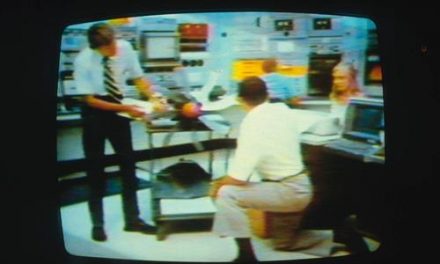Television has been widely theorised in relation to the everyday, the habitual and the repetitive. But there are a lot of phenomena that are surprising, and that require TV scholars to provide nuance to these observations. Take Squid Game (Netflix, 2021) which was supposedly the streaming hit of the year 2021 in the UK and elsewhere. But as an example of a Korean TV drama, it is highly unusual. Similarly, when we asked British audiences what programme gave them the most comfort during Covid, Grayson’s Art Club (Channel 4, 2020), a small, participatory and community-focused programme was voted winner of the Critical Awards in Television, instead of any of the expensive dramas that television critics spent so much time reviewing and writing about. There are stories to be told that need telling and that we don’t hear enough about because while television is complex and mutable, discussion of it remains entrapped with longstanding cultural hierarchies. On the other side of the spectrum is a subject area that still worries about its legitimacy and hence continues to produce more publications on high-end productions such as Game of Thrones (HBO, 2011-2-19) over those that, in the daily lives of audiences, might actually play a more important role, such as the different versions of Strictly Come Dancing (BBC, since 2004), including Dancing with the Stars (ABC, 2005). Thus, we want to put a particular focus this year at the Critical Studies in Television Conference at the outliers of television (studies). This includes, but is not restricted to:
- Overlooked programmes
- Aspects of television as a medium that have not attracted enough attention
- Different forms of television
- Innovative ways of working
- Surprising audience behaviour
- Marginalised voices
- Failures of television (studies)
- The invisible in television (studies)
We invite abstracts on any of these and any other television related topics. Abstracts should be no longer than 500 words and should be submitted by 15 February. We are always looking for alternative ways of presenting, so if you want to submit an abstract for a screening, roundtable, etc. please feel free to do so too. We are hoping to send out acceptance emails by early March. Papers should be 20 minutes long, screenings should include a discussion element and should be no longer than 1 hour. Roundtables should also be no longer than 1 hour.
To submit your abstract please go to the Critical Studies in Television Conference Abstract Submission .
Due to the ongoing Covid-19 crisis and the significant uncertainties regarding it, we will run the conference as an online slow conference again this year in the hope to return to a face-to-face conference the year after, after which we will alternate formats. We recognise that the slow conference format also enables a wider variety of voices to be heard and we will do our utmost to make it accessible in a number of ways.
If you have any questions, please don’t hesitate to contact the CST Conference team, CSTConference@edgehill.ac.uk, or Elke Weissmann weissmae@edgehill.ac.uk.






